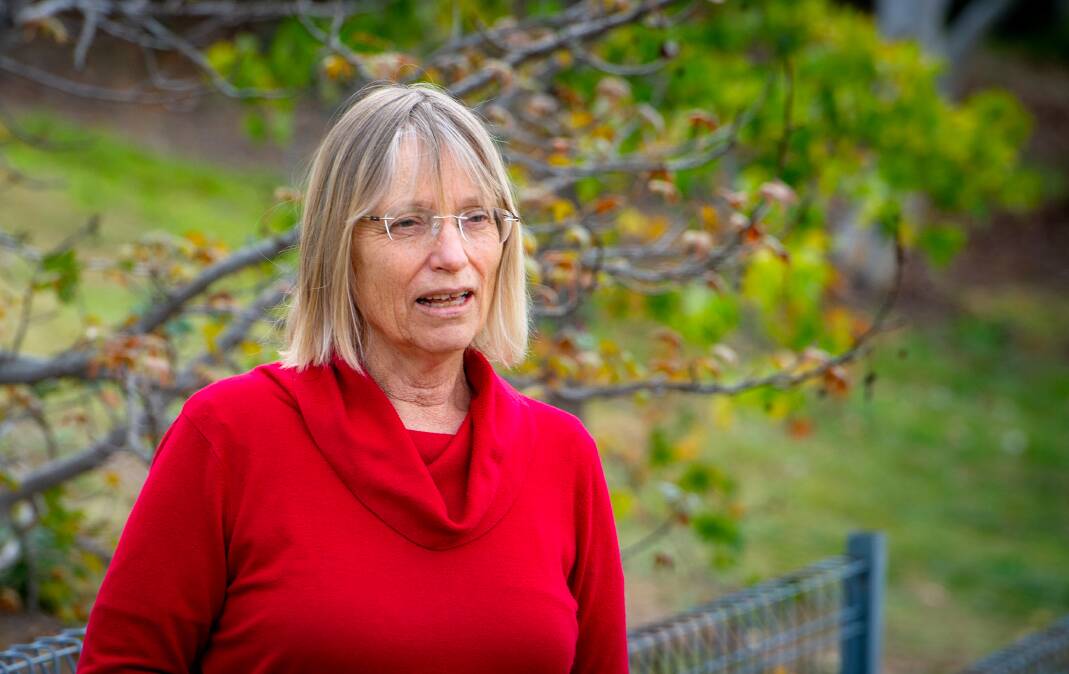
When Planning Minister Mick Gentleman declared in mid 2021 the ACT government would develop a new planning bill following a three-year review of the system it sparked hope among the community and planners alike.
Mr Gentleman said a new bill "starting with a blank slate" was needed to replace the "complex and cumbersome" act.
A new "outcomes-focused" approach would be introduced, which ACT chief planner Ben Ponton said was the result of years of review and consultation.
But the bill has become one of the most contentious of this parliamentary term.
A parliamentary inquiry into the bill has attracted dozens of submissions from stakeholders criticising the bill and many have called for a complete overhaul of the territory's entire planning system.
It has even caused a fracture between Labor and the Greens. Following the introduction of the bill in September, Greens leader Shane Rattenbury issued a statement saying further changes were needed, including stronger environmental protections and better community consultation.
Mr Rattenbury's statement meant the Greens were banished from cabinet discussions about the bill's development.
The tripartisan planning committee is expected to hand down its report into the planning bill on Thursday.
'It's a new planning system for the ACT'
The new planning bill has been flagged as the most significant change to the territory's planning system since self-government in 1989 and followed a three-year review of the system.
Under the new bill, the planning process will shift from a heavily regulated, rule-heavy system to one that is more focused on outcomes. There will also be specific plans created for each of Canberra's districts but this will be separate to the bill.
There will also be changes to consultation, with the government to drop pre-development application consultation which is currently a requirement for major applications in the territory.
The act will also drop controversial "call in" powers but the government will still be able to bypass regular development applications on projects it deems a priority.
New powers would allow the Planning Minister and Chief Minister to determine "territory priority projects", allowing development application approval to be expedited, unlike "call in" powers the government would need to determine the project prior to its application.
But among the many elements of the planning system that are proposed to be changed there is one thing that will not change and that is governance.
This is despite many submissions to the planning inquiry saying this is the main issue that needs to be addressed.

Greens chair of the standing committee on planning Jo Clay brought this up with Mr Gentleman and Mr Ponton in recent hearings.
"Despite the fact you've told all the stakeholders that you're not reviewing governance, that's still the single biggest issue that people have spoken to us about so I think that is something to note," Ms Clay said.
Mr Gentleman responded there was already good governance in the ACT.
"This bill and change to the planning system is not about governance. It's a new planning system for the ACT. My view is that governance arrangements provide very good scrutiny for it in the territory," he said.
"I don't see any need to change that."
'Too much power resides in the hands of too few'
Community groups would tend to disagree with the assessment that governance does not need changing.
Many groups have called for an independent body to be developed to oversee planning in the ACT. Groups have also criticised the consultation process for the bill.
The Canberra Planning Action Group, which was formed "in response to widespread and growing discontent by community groups and individuals with ACT planning and approvals processes", shared concerns about the consultation process.
In the group's submission to the inquiry, convener Geoff Pryor wrote the group had tried to consult widely in the "limited time available".
The group recommended in its submission that planning in the ACT be an independent body.
This was a view also echoed by the Woden Valley Community Council, which said in their submission the ACT's unicameral system of government and small Assembly meant "too much power resides in the hands of too few".
The council included a table showing how the ACT compared to other jurisdictions. It pointed out the ACT and Queensland were the only two places that did not have an independent authority or board to provide planning advice.
Woden Valley Community Council president Fiona Carrick, who wrote the submission, said there had also been no changes to those in power since the current planning act was introduced in 2007. She said at that time Andrew Barr was planning minister and Mick Gentleman was a member of the government.
"With the same people in charge of the vision for Canberra and the planning system, it's not clear that the outcomes in Woden will change," she said.

Similar views were also expressed by the Gungahlin Community Council in their submission, which called for an independent review of the proposed planning bill to ensure the bill's objectives are valid and have been correctly drafted.
The council was also especially scathing of consultation on the bill, saying the process would not restore trust in the planning system.
"The consultation undertaken on the new planning bill itself is consistent with our concerns ... a series of fact sheets and many hundreds of pages of draft legislation were provided for community consideration," the council's submission said.
"A very high level of assumed knowledge was required to be able to consider the material provided and it was clear that any stakeholder that might wish to respond to the consultation would need a strong background and/or expertise in ACT legislation and planning to do so."
'We are concerned'
Concerns introduced by Greens leader, Mr Rattenbury, about the bill's light-touch approach to environmental matters have been echoed by other advocates in their submissions.
The draft planning bill lacks consideration of environmental matters and should do more to support Canberra to be a sustainable city, the ACT's chapter of the Council of Conservation believes.
The ACT government should bolster its climate record through the planning bill, by adding meeting climate targets to "matters considered important" in achieving the object of the Act.
Every environmental impact statement prepared for developments should also include a climate impact statement, while fossil fuel based energy generators should be prohibited developments.

The Friends of Grasslands community organisation also expressed disappointment in its submission, for the bill's failure to address significant elements of natural biodiversity.
"We are concerned that the Planning Bill provides no guidance to ensure that 'good planning' outcomes will take into account natural environment conservation principles," the group's president Jamie Pittock wrote.
This should be written into the bill's object, while high conservation ecosystems should also be marked as exempt from development, Mr Pittock advised.
'An elevated role for strategic planning'
Outcomes-focused planning is the way to go, but there has to be adequate resourcing to underscore the new system, property and construction proponents made clear in their submissions.
"It is crucial that the provisions of the Planning Bill support a planning system that provides for greater certainty, opportunities for flexibility, reduced timeframes for planning applications and an elevated role for strategic planning," the ACT Property Council's submission states.
A lack of resources in the territory's planning directorate, which has caused month-long delays in the assessment processes of some development applications, should also be considered in this reform.
The property body called for "adequate resources be allocated towards the reform project to ensure that the intended outcomes are achieved".
"There needs to be considerable upskilling of assessment planners in the Directorate (Territory Planning Authority) to undertake the assessment of developments against the new Territory Plan."
The council is also supportive of measures to streamline the process for developers, such as removing pre-development application consultation, but also called for further measures to improve the assessment timeframes such as less complex documentation requirements for low-impact developments.
The peak body for construction in the ACT is also sceptical of how much can actually change without additional resources injected into planning in the territory.

The new planning bill is arguably the most significant reform impacting the local building and construction industry proposed in this term of the Legislative Assembly, Masters Builders ACT chief executive Michael Hopkins penned in his submission.
The group queried a lack of operational improvements to the agencies responsible for implementing the planning system such as "additional resources to be provided, staff or stakeholder training to be provided".
The administrative arrangements between the planning directorate and referral agencies, utility providers, the National Capital Authority and the Design Review Panel could also be smoothed over.
Diverging from community organisations, the peak construction body is supportive of additional provisions for expediting important projects.
But builders in the ACT want to see these powers expanded even further to include private proposals which would have a significant impact on the lives of Canberrans.
'It is not based on actual outcomes'
"At first glance I assumed outcomes-based meant that a development would be assessed after it had been built to see if the desired outcomes were achieved? I wondered if buildings [could] be demolished/ altered if they don't create the expected outcomes," former Greens MLA Caroline Le Couteur wrote in her submission.
The term "outcomes-based" did cause confusion among many.
"Replacing rules and criteria for assessing development applications with an 'outcomes-based' model begs the question how assessments and decisions are to be made," the Curtin Residents Association wrote.

The government's submission says: "an outcomes-focused planning system means that the primary focus of the bill is on encouraging planning outcomes that go beyond the built form to consider broader policy outcomes, including important matters like the environment and climate-resilience".
But some don't think this will be any great change on the current approach.
"So it is clear that although it is called 'outcomes-based planning', it is not based on actual outcomes. It is based on expected outcomes. So you could say it's the same as the current system except there will be less rules and more criteria," Ms Le Couteur wrote.







